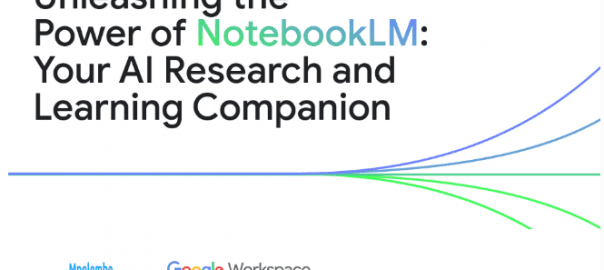This HCLTech report discusses the payments industry’s rapid adoption of Artificial Intelligence (AI), highlighting that while nearly all organizations use AI, a large percentage of executives are concerned about risks, fraud ineffectiveness, and a lack of proper guardrails and infrastructure. Continue reading
Tag Archives: Computational neuroscience
Carbon3.ai Launches Sustainable Sovereign AI Platform in UK
The launch of Carbon3.ai is billed as the UK’s first truly sovereign and sustainable AI platform. This new initiative plans to deploy a nationwide AI Mesh with over 100,000 GPUs, powered by its own renewable energy generation and supported by significant planned investment exceeding £1 billion. The platform aims to offer UK enterprises and government a secure, low-latency, high-performance AI compute alternative with a smaller carbon footprint and lower cost than competitors. Continue reading
Generative AI’s Impact on Software Development: A DORA Perspective
May 20, 2025 /Mpelembe Media/ — This report from DORA explores the impact of generative AI on software development, analyzing both the challenges and opportunities it presents. It examines how AI affects individual developers’ productivity and well-being, finding both benefits and unexpected trade-offs. The document also addresses the organizational perspective, considering how AI influences processes like code quality and delivery speed, while acknowledging a potentially negative short-term impact on delivery performance. Finally, it proposes practical strategies for fostering developer trust, promoting responsible AI adoption, and measuring success within organizations.
Down load the free report
Celestine Achi: Pioneering AI PR in Africa
This source, presented as a press release, focuses on Celestine Achi, described as a pioneer in AI communications in Africa. It highlights his work in reshaping Public Relations (PR) strategy through various educational tools and frameworks. The text details his initiatives, including a book titled “AI-Powered PR”, an interactive game, and the AI-PR Maturity Model™, all designed to equip professionals with the skills needed for an AI-driven media landscape. The article also introduces the TABS-D™ framework, a practical methodology for implementing AI in PR, and references a goal to train 100,000 African communicators in AI literacy by 2030. Ultimately, the source portrays Achi as a key figure driving African leadership in the application of AI within the communications sector. Continue reading
AI can guess racial categories from heart scans – what it means and why it matters
Tiarna Lee, King’s College London
Imagine an AI model that can use a heart scan to guess what racial category you’re likely to be put in – even when it hasn’t been told what race is, or what to look for. It sounds like science fiction, but it’s real.
REPLY: The jury for the second edition of the Reply AI Film Festival is announced, which will celebrate the best AI-generated short films
Reply, an international group specialized in the development of new business models enabled by Artificial Intelligence and long committed to the exploration of emerging technologies and supporting the growth of new talent, announces the jury for the second edition of the Reply AI Film Festival. Continue reading
Unleashing the Power of NotebookLM
May 8, 2025 /Mpelembe Media/ — This ebook, created in partnership with Google Cloud, introduces and explains NotebookLM, an AI research and learning assistant developed by Google. It highlights NotebookLM’s capabilities in analysing user-provided sources like documents, videos, and web pages to provide accurate, contextually relevant answers and precise citations. Continue reading
BizClik Media Launches May Editions of Technology Magazine and AI Magazine
BizClik, the UK’s fastest-growing B2B digital media company, has published the May 2025 editions of Technology Magazine and AI Magazine. These titles continue to showcase industry-defining perspectives on enterprise transformation, spotlighting leaders and companies shaping the future of technology, cloud, telecoms and AI. Continue reading
Global AI APIs Market Outlook to 2030
This report presents an analysis of the **AI APIs Market**, forecasting significant growth, driven by a **21.7% Compound Annual Growth Rate** between 2024 and 2030, leading to a **USD 13910 Million valuation** by 2030 from USD 3365 Million in 2023. Continue reading
People trust legal advice generated by ChatGPT more than a lawyer – new study
Eike Schneiders, University of Southampton; Joshua Krook, University of Southampton, and Tina Seabrooke, University of Southampton
People who aren’t legal experts are more willing to rely on legal advice provided by ChatGPT than by real lawyers – at least, when they don’t know which of the two provided the advice. Continue reading










